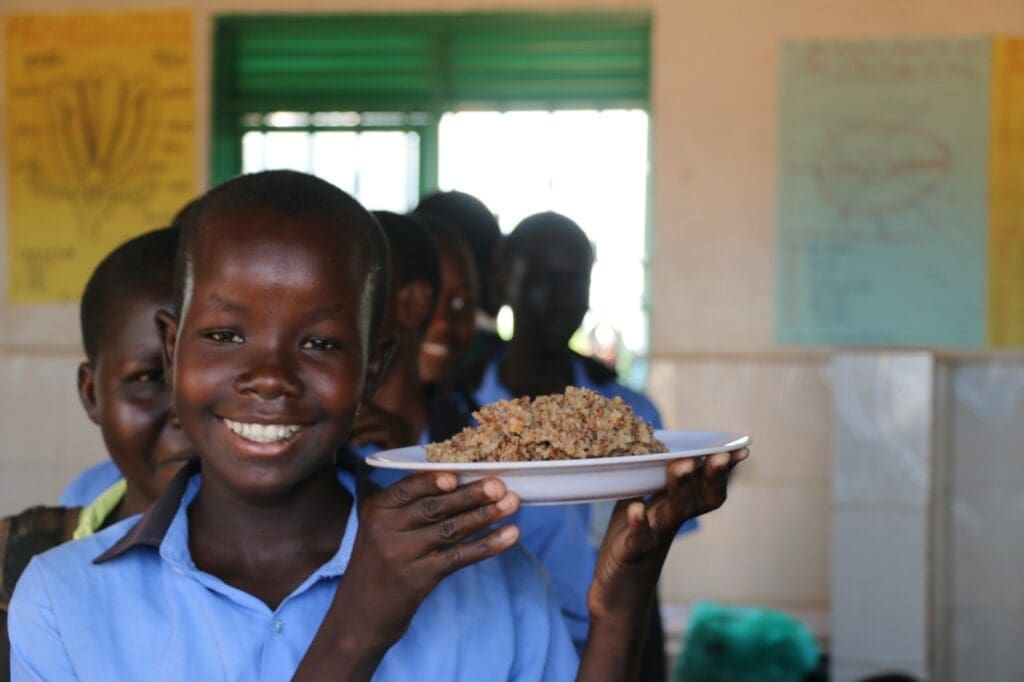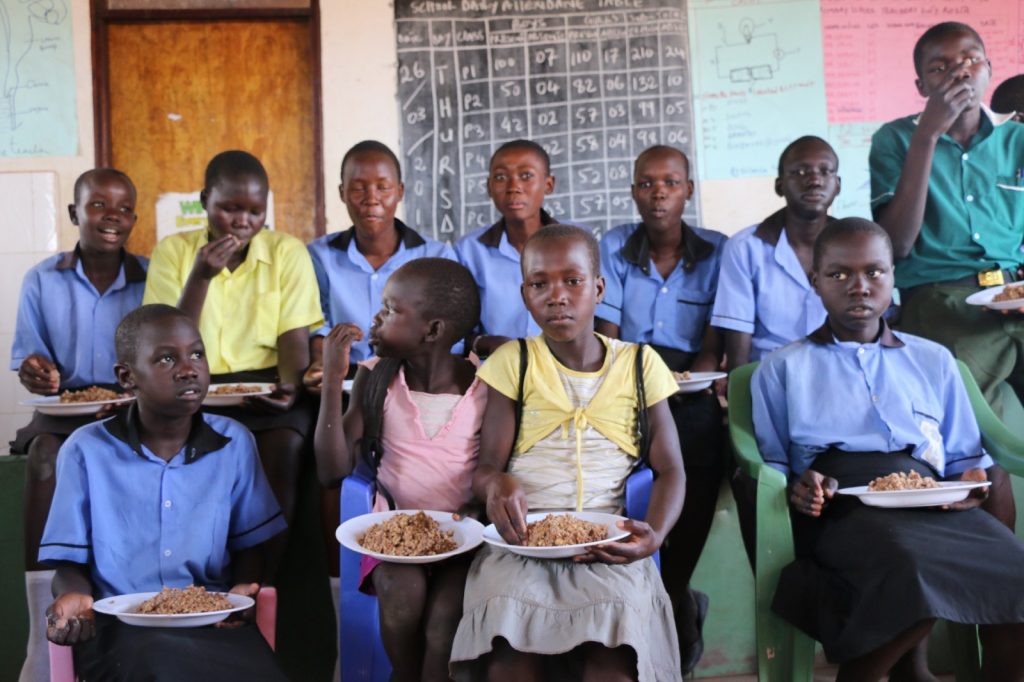Investing in South Sudan’s Next Generation


WFP/George Fominyen
At 20 years of age, Nyanluak Bany should be studying towards her tertiary qualification. Unfortunately, repeated fighting has disrupted her education on several occasions and she has yet to complete her primary schooling.
Mounting challenges
Conflict and a deepening economic crisis have resulted in widespread hunger in South Sudan with people unable to meet their daily food needs. When faced with challenges, poor households employ a variety of coping strategies to ensure access to food, including selling household items and pulling children out of school to help with household tasks.
In Yei, a garrison town southwest of the country, close to South Sudan’s borders with Uganda and the Democratic Republic of Congo, fighting and insecurity disrupted farming resulting in a spike in food insecurity levels, grinding business to a halt and forcing essential services such as schools to close doors. Half the population fled into neighboring Uganda in search of refuge but for those who either remained or have returned home, a daily school meal has brought hope.

WFP/George Fominyen
Renewed dreams
Nyanluak recalls vividly the day her dream to graduate as a teacher was re-ignited. Peace had returned to her village in Yei, a medium-sized town in South Sudan’s southwest, and the promise of a daily school meal was enough motivation for her parents to re-enroll her in school.
WFP’s school meals program is giving children a chance to continue their education. Under the program implemented jointly by WFP and Plan International, in 2017, 27 schools have reopened in Yei and more than 10,000 children receive either cooked meals or take-home rations to encourage them, especially girls, to attend classes.
And the benefits have been immense.
Multiple Benefits
“School meals go way beyond the classroom.” Says Adnan Khan, WFP’s Country Director in South Sudan. “School meals help ensure every child has access to education, health and nutrition.”
“The daily school meal is often the only meal children have,” explains Lona Sadia, Minister of Education in Yei River. “The aim of the programme is to encourage parents struggling to feed their children to send them to school and reduce the rate of school dropouts.”
A daily school meal provides a strong incentive to send children to school and keep them there, it helps to increase school enrollment and attendance, decrease drop-out rates, and improve cognitive abilities.
Whilst it is not clear when conflict in South Sudan will end, for Nyanluak and many other, the chance to pursue their dreams is enough promise of a better country to come.
Learn more about WFP school meals




